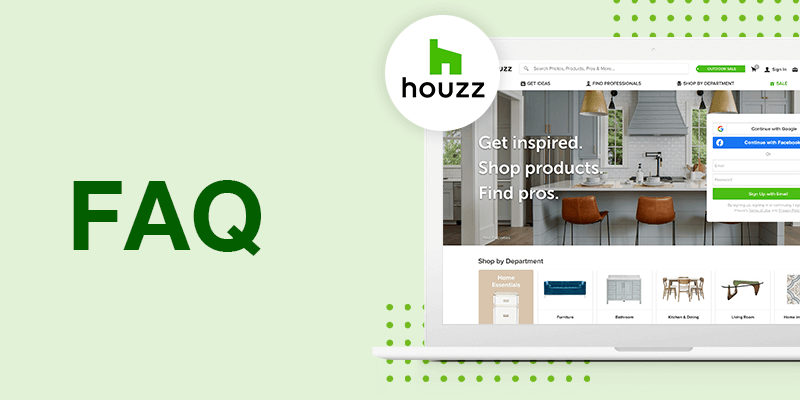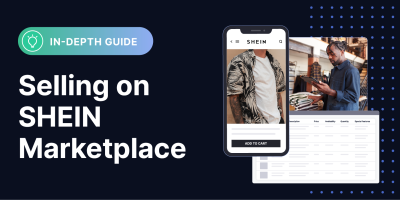Houzz is a marketplace with more than 900 categories of home products and features more than 40 million monthly users. If you’re wondering how to sell on Houzz, this guide has the info you need to get started.
What do I need to set up a Houzz seller account?
Houzz is a community for people primarily interested in remodeling or design. As a result, Houzz only approves sellers who cater to the needs of its online community.
To become a seller, you need to submit a request to Houzz’s support team. The request form requires the following information:
- Country
- Type of request (select “Merchant Support”)
- Topic (select “How can I become a seller?”)
- Email address
- Subject
- Description (express interest in becoming a seller, and include your company name, website link, and product category)
- Name
- Company
After reviewing your request, Houzz seller support will reach out to you with the next steps.
Once approved, sellers must provide the following information to set up their Houzz Seller Central account and begin listing products:
- Bank account information
- Sales tax settings, including tax rates and areas where you collect tax
- Accept the seller agreement
- Primary email address associated with your account (for login purposes)
- Order notification email address (to receive messages about new order, cancellations, payment updates, unshipped orders, and processed refunds
- Customer service email address
- Shipping settings
What are the commission rates on Houzz?
There is a 15% selling fee for all products sold on Houzz.
What are the image requirements on Houzz?
Houzz requires high-resolution images with minimum dimensions of 500 by 500 pixels.
The main image must show the product by itself on a white background. Each product must also have an additional lifestyle image of the product in a room. Watermarks, logos, people, and landmarks are not permitted in the images.

Example
Do I need approval to list in certain categories on Houzz?
All sellers must be approved to list products on Houzz, regardless of product category. In addition, the following products are prohibited in all cases.
Are UPCs or GTINs required to sell on Houzz?
Unique product identifiers like GTINs or UPCs are required to list products on Houzz. However, if your products do not have GTINs or UPCs, you may reach out to sellersupport@houzz.com for guidance.
What are non-compliance fees on Houzz?
Houzz also charges non-compliance fees for sellers with substandard fulfillment. Below are the four fulfillment issues that can result in non-compliance fees, and their associated-fee amounts:
- Shipping the customer’s order after the maximum stated lead time – $12/order
- Providing the customer with an invalid or missing tracking number – $2/tracking number
- Cancelling an order due to the product being out of stock – $15/order
- Cancelling an order because it failed to ship – $25/order
Houzz will waive non-compliance fees for two of the above scenarios: orders cancelled due to an item being out of stock, and orders that shipped after the maximum stated lead time. The fees will only be waived if no more than 2% of the seller’s orders have been affected by each of the aforementioned issue. This percentage is calculated against the previous month’s order volume.
For example, let’s say you had 100 orders last month, and this month three of your orders were cancelled because the products were out of stock, plus two other orders shipped late. The non-compliance fee would be waived for two of the out-of-stock cancellations, but not the third order. The non-compliance fee for the two orders that shipped late would also be waived. All-in-all, you would pay $15 in non-compliance fees for the single order that surpassed the 2% threshold of allowable out-of-stock cancellations.
Keep in mind, Houzz rounds up to calculate the percentage of orders affected. You can learn more about non-compliance fees on Houzz.
If you’re interested in selling products on Houzz or other marketplaces, Feedonomics has you covered. Contact us to see how we can help!

Brian Roizen is the Cofounder and Chief Architect of Feedonomics, a full-service feed optimization platform that optimizes product data for hundreds of channels. He has been featured on numerous podcasts and eCommerce webinars, and regularly contributes to Search Engine Land and other industry-leading blogs. Brian graduated summa cum laude from UCLA with both a Bachelor’s and Master’s degree in Mechanical Engineering.

